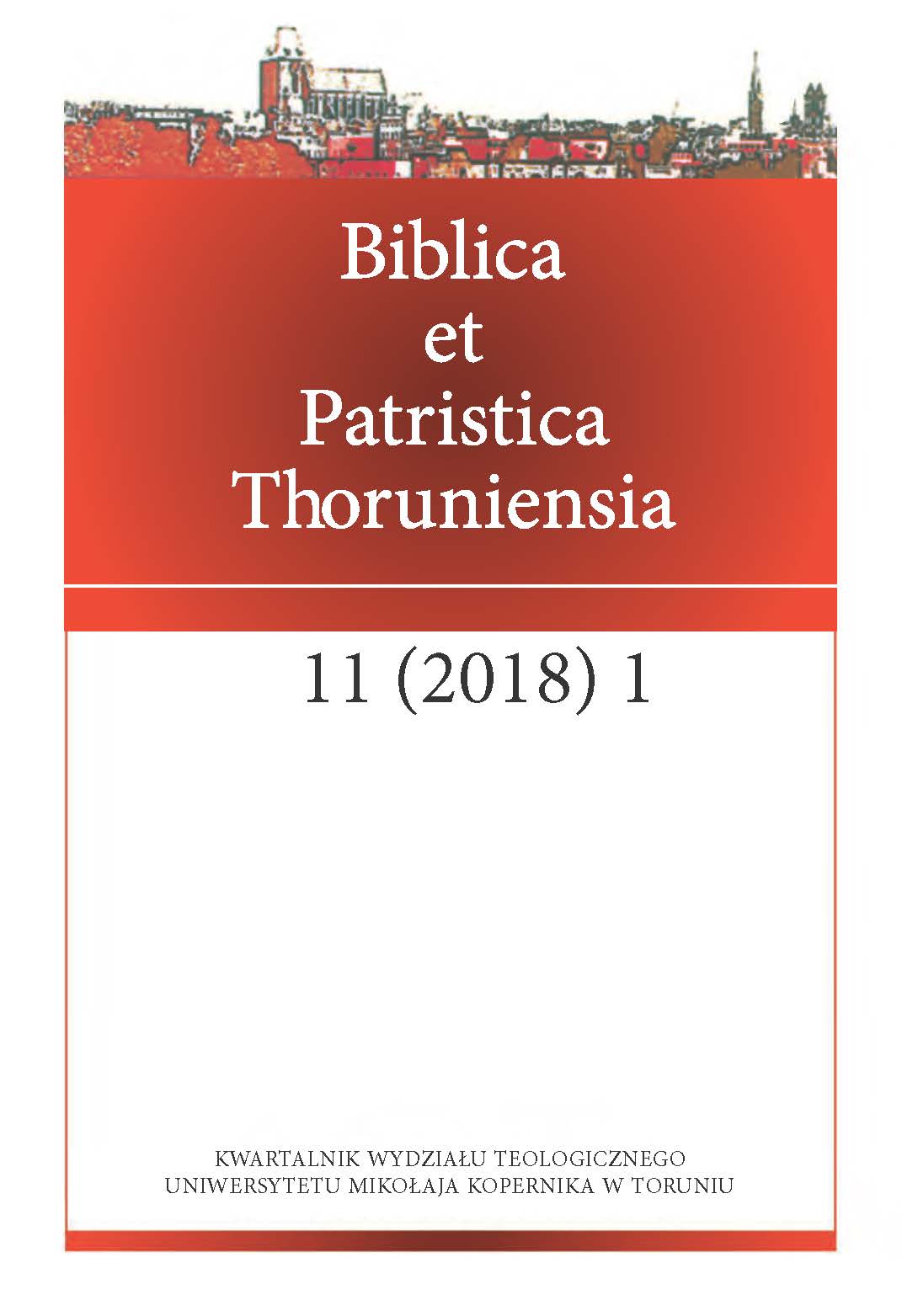”Our citizenship is in heaven.” St Paul’s discourse on the final things in Philippians. (Phi 3:1–4:1)
DOI:
https://doi.org/10.12775/BPTh.2018.005Keywords
justification, persecution, eschatology, resurrection, Filippians, community, hope, eternityAbstract
As in the Letters to the Romans and the Galatians, the foundation of St. Paul's doctrine in the Letter to the Philippians is a righteousness that comes through faith in Christ (Phil 3:9). The Apostle proclaims this truth during a confrontation with his opponents referring at the same time to the fact which accompanied his call to discipleship. Paul divides his life into two stages: the one according to the law (kata. no,mon) and the present one “in Christ”. His attitude and experience of God have the value of paradigm and example. As the Apostle of the Nations broke with the precepts of the Law he encourages the Philippians to follow his example on the way to the Gospel. The Torah and its rules should be an anachronism (3:17). According to St. Paul, the way of the Gospel stretches between what is now and what Paul calls the participation in Christ's sufferings and the hope of resurrection which is the culmination of a Christian vocation. St. Paul bases his whole message in Phil 3:1-4:1 on these two theological and literary themes. It might be expressed using the paraphrase of the Apostle's words that both the Philippians and the growing Church should await the Lord (Kuri,oj), Jesus Christ as the Saviour who will transform the body of our humiliation so that it may be conformed to the body of his glory (Phil 3:21). This truth expresses the most succinct message of Paul's eschatology coming from the pages of the Letter to the Philippians.
References
Bloomquist L. G., The Function of Suffering in Philippians, JSNTSSup 78, Sheffield, 1993.
Bormann, L., Philippi, Stadt und Christengemeinde zur Zeit des Paulus, NT.S 78, Leiden 1995.
Delling, G. D., Stoicheō,w, TWNT, VII, s. 666-669.
Fee G. D., Paul’s Letter to the Phillippians, Grand Rapids, 1995.
Garland, D. E., The Composition and Unity of Philippians, NT 27 (1985), s. 141-173.
Gnilka J., Der Philipperbrief, HTKAT X/3; Freiburg; Basel, Wien 1968.
Grundmann W., Amemptos, TWNT, IV, s. 576-578.
Grundmann W., Symmorphizō, TWNT, VII, s. 776-798.
Jankowski A., Listy Więzienne Świętego Pawła: Do Filipian – do Kolosan – do Filemona – do Efezjan, PŚNT VIII, Poznań 1962.
Keck L. E., Paul and His Letters, Philadelphia, 1988,
Lang F., Skybala, TWNT, VII, s. 446-448.
Lohfink, G., Die Himmelfahrt Jesu. Untersuchungen zu den Himmelfahrts- und Erhöhungstexten bei Lukas, SANT 26, München 1971.
Martin R. P., Hawthorne G. F., Philippians, WBC 43, Waco 1983.
Reed J. T., Philippians 3,1 and the Epistolary Hesitation Formulas: The Literary Integrity of Philippians, again. JBL 115 (1996), s. 63-90.
Schnider F., Stenger, W., Studien zum neutestamentlichen Briefformular, NTTS 11, Leiden 1987.
Theobald M., Der Philipperbrief, w: M. Ebner; S. Schreiber, Einleitung in das Neue Testament, Stuttgart 2008, s. 371-389.
Watson D. F., A Rhetorical Analysis of Philippians and Its Implications for the Unity Question, NT 30 (1988), s. 57-88.
Walter N., Die Philipper und das Leiden. Aus der Anfängen einer heidnischen Gemeinde, w: R. Schnackenburg, Die Kirche des Anfangs, FS: H. Schürmann, Freiburg in Breisgau 1978, s. 417-434.
Wilk J., Postawa świętej obojętności Apostoła Pawła na podstawie Listu do Filipian 4,11-13, w: W. Chrostowski; D. Kotecki., Scrutamini Scripturas (J 5,39). Księga Jubileuszowa dla Księdza Biskupa Andrzeja W. Suskiego w rocznicę 75 urodzin, Warszawa, 2016, s. 467-477.
Wischmeyer O., Paulus. Leben-Umwelt-Werk-Briefe, Tübingen 2006.
Downloads
Published
How to Cite
Issue
Section
License
CC BY ND 4.0. The Creator/Contributor is the Licensor, who grants the Licensee a non-exclusive license to use the Work on the fields indicated in the License Agreement.
- The Licensor grants the Licensee a non-exclusive license to use the Work/related rights item specified in § 1 within the following fields: a) recording of Work/related rights item; b) reproduction (multiplication) of Work/related rights item in print and digital technology (e-book, audiobook); c) placing the copies of the multiplied Work/related rights item on the market; d) entering the Work/related rights item to computer memory; e) distribution of the work in electronic version in the open access form on the basis of Creative Commons license (CC BY-ND 3.0) via the digital platform of the Nicolaus Copernicus University Press and file repository of the Nicolaus Copernicus University.
- Usage of the recorded Work by the Licensee within the above fields is not restricted by time, numbers or territory.
- The Licensor grants the license for the Work/related rights item to the Licensee free of charge and for an unspecified period of time.
FULL TEXT License Agreement
Stats
Number of views and downloads: 999
Number of citations: 2



